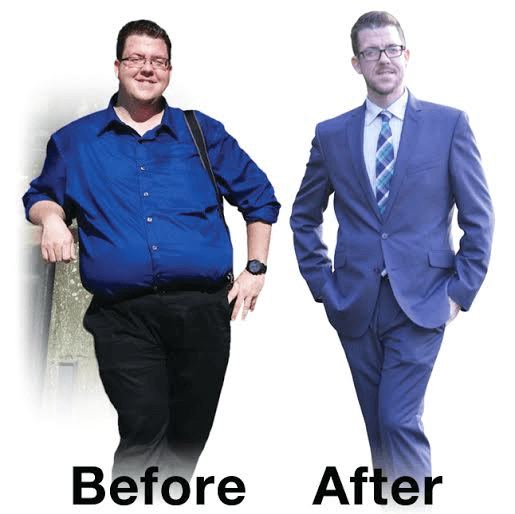Reporter was commissioned to write this in-depth article.
A year and a half ago, Jeff Spence was a 33-year-old man with serious health concerns.
The Philadelphia resident (who had been overweight his entire life) was fighting a losing battle to shed the unwanted pounds. Not only was he on medication to regulate his blood pressure, he was also having little success sustaining any long-term results with diet plans and other traditional fitness approaches. “I was very unhealthy and knew that I needed to take some drastic actions to help with weight loss,” says Spence. “I also had a family history of heart disease; my father passed away from a heart attack at 39.” For Spence, weight loss surgery at Hahnemann University Hospital’s Center for Surgical Weight Loss was the answer. Just one year after having Roux-en-Y Gastric Bypass (RYGB) surgery, Jeff lost a total of 165 pounds. “It’s been more than a year and a half since surgery, and I have been sustaining that ever since,” he says, adding that he was pleasantly surprised by just how quickly he began to drop the weight. “But the program at Hahnemann really does a great job of preparing the patient for what to expect.” This includes frequent patient-to-patient communication and support groups. According to Spence, these resources helped empower him during his weight-loss journey.
While he is more than happy with the results, Spence views his surgery as just the first step toward a healthier lifestyle; not a quick fix. He sees the procedure more as a tremendously helpful tool for losing the weight. The surgery – combined with regular exercise and a healthy diet – was what ultimately changed his life for the better. With Roux-en-Y Gastric Bypass surgery, the surgeon creates a smaller stomach pouch, and attaches a Y-shaped section of the small intestine directly to the pouch. This allows food to bypass a portion of the small intestine, which absorbs calories and nutrients. Having a smaller stomach pouch causes the patient to feel full sooner and eat less food. Bypassing a portion of the small intestines means the patient’s body absorbs fewer calories. Hahnemann also offers another surgical option, the Sleeve Gastrectomy. This minimally invasive procedure permanently removes 85 percent of the stomach, leaving a cylindrical or “sleeve-shaped” stomach, which reduces the amount of food that can be eaten at one time, and gives a prolonged sense of fullness. The clinical team at the Center for Surgical Weight Loss at Hahnemann offers a multi-disciplinary approach to patient care. Every member of the care team is dedicated to giving each patient the guidance, education and support they may need to achieve optimal success. Hahnemann’s comprehensive surgical weight loss program is for people who are 100 pounds or more overweight and have been unsuccessful with conventional weight loss methods. For Spence, surgery was what jumpstarted him into a healthier lifestyle. Another major benefit has to do with his emotional well-being. “For someone who’s been heavy their whole life, there’s a freedom of movement I have now that can’t really be described unless you understand it,” he says. “I can run a 5K now with little problem, and I never imagined that.” Hahnemann provides free seminars to answer all your questions regarding bariatric surgery. Click here for quick and easy online registration, or call them directly at 267-330-0760. Required Disclaimers:
Why weight loss surgery might be the game changer you need


















